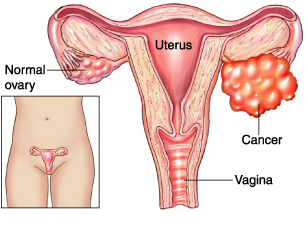Campaigns that inform about breast cancer are abundant in the media, but the one cancer which may be the most fatal of gynecologic cancers is silently at work, killing more than 60% of women diagnosed – ovarian cancer.
It is also the cancer women know shockingly little about, and most women cannot identify its symptoms. Dr. Barbara Vanderhyden from the University of Ottawa, Canada confirmed in a study, that there are a lot of misconceptions about the disease. One in three women falsely believe that a Pap test screens for ovarian cancer. Remarkably, 12% of Canadian women claim that they have never heard about the disease, and only 35% consider themselves well informed. Even more problematically, women 50 years and older-those with the highest risk for ovarian cancer- are significantly less likely to be aware of their risk for disease than their younger counterparts. 71% of women think that ovarian cancer mainly affects women under 50 years of age.
In the view of the findings that 96% of the women could not identify a combination of the most common symptoms of ovarian cancer, it is of great importance that more education and information is needed. Women as well as their health care providers have to be vigilant about early warning signs and symptoms. The most common warning signs and symptoms for ovarian cancer are bloating, abdominal pain, changes in urinary frequency, weight fluctuation and nausea.
Diagnostic tests involve a bimanual examination by a physician, which is needed for all women, including those who did have a previous hysterectomy. The other test to consider would be an abdominal ultrasound.
More information about ovarian cancer: http://nethealthbook.com/cancer-overview/ovarian-cancer/
Reference: The Medical Post, September20, 2005, page 47
Last edited October 29, 2014






